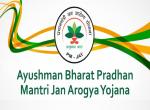India is a representative democracy, a republic which is socialist and secular and in which the Preamble of the Constitution and Article 19 guarantee the fundamental right of freedom of speech and the freedom to form associations or unions. These can be political, which means they would be political parties, social, welfare oriented, religious or even groups of friends with common interests. In a representative democracy, elections are fought on the basis of political parties and this finds legal recognition in the Representation of Peoples Act 1951. After the election, the President in the case of the Union and the Governor in the case of a State appoints a person as Prime Minister or Chief Minister, as the case may be, under Articles 75 and 164 respectively because under Articles 74 and 163, the President or the Governor performs his executive functions in accordance with the aid and advice of his Council of Ministers, whose existence, therefore, is mandated by the Constitution itself.
This article refers only to the situation in the Union because constitutionally the position in the States vis-à-vis the Governor and the Council of Ministers is the same as that for the Union. Because the Council of Ministers is collectively responsible to the House of the People under Article 75 (3) and the Prime Minister and his Ministers can hold office only so long as they enjoy the confidence of the House, it is obvious that unless they belong to the majority party or group in the House, they cannot enjoy the confidence of the House. It is for this reason that politicians form parties which then try and get a majority in the House at the time of the election. A heterogeneous collection of 543 Members of Lok Sabha can never develop the cohesion necessary to form a majority group and, therefore, let us take it as axiomatic that in a representative democracy there will be political parties.
To differentiate itself from other parties every political party adheres to an ideology, a political philosophy and a programme which can promote that particular ideology. There is complete freedom to develop, evolve and present one’s own ideology, ranging from the extreme left to the extreme right, but subject to the restriction that no political party will question the sovereignty, unity and integrity of India or advocate a system of government which rejects the socialist, secular and democratic nature of our republic. Nor can a party advocate that there will be no justice, liberty, equality and fraternity in India. The Representation of People’s Act states categorically that for a political party to be recognised by the Election Commission, it must swear allegiance to the Constitution. Every office bearer who holds a constitutional position is required to swear an oath or make a solemn affirmation that he or she will function according to the Constitution. For example, the oath for the President is: “I, A.B. do swear in the name of God/solemnly affirm that I will faithfully execute the office of President of India and will to the best of my ability preserve, protect and defend the Constitution and the law and that I will devote myself to the service and well being of the people of India”. As per the Third Schedule, a minister is required to take the following oath, “I, A.B, do swear in the name of God/solemnly affirm that I will bear true faith and allegiance to the Constitution of India as per law established, that I will uphold the sovereignty and integrity of India, that I will faithfully and conscientiously discharge my duties as a minister for the Union and that I will do right to all manner of people in accordance with the Constitution and the law without fear or favour, affection or ill-will”. Similar oaths have to be sworn by a minister in a State, by judges, by Members of Parliament and the State Legislatures, amongst others. Every M.P. or MLA, every Minister belongs to some political party or is an independent and if he has to swear an oath to uphold the Constitution it means that the ideology of every party and individual has to accept the common denominator of the Constitution. This point is pertinent here because whereas every party is free to adhere to its ideology, it cannot forswear the Constitution or advocate its overthrow. That would constitute an offence of sedition under section 124 A of the Indian Penal Code and invite drastic penalties, apart from making the party ineligible to hold public office.
If India is a representative democracy and elections are largely fought on the basis of parties, then obviously every party has to present to the people its own ideology, its vision of India in the long term and its specific programme of work in the next five years after an election by which it will promote such action as will facilitate the party in achieving its political goals. For example, Margaret Thatcher as leader of the Conservative Party in Britain stated categorically that if the party was voted to power she would dismantle the socialist state. The people of Britain accepted this and for the next eleven years Margaret Thatcher worked diligently to achieve what had been stated in the election manifesto of the party. Even when a particular policy was unpopular, Margaret Thatcher relentlessly worked towards implementation of the policy and by the time she ceased to be Prime Minister, the entire political picture of Britain had changed. Even successor Labour Governments were unable to restore the old socialist state and in one form or the other they continued to implement what Margaret Thatcher had wrought.
In a true representative democracy ideology and programmes for implementation of ideological goals have to form the base of a party’s electoral platform. There is no room for cheap populism, nor is there any need, because every political party prepares a programme on the basis of an ideology which has strong philosophical moorings and which has been adopted after considerable thought. Of course, in a true democracy governments can change according to whether the people accept or reject the performance of the government and, therefore, the ideological differences between the parties have to be within defined parameters which ensure that no extremist philosophy can take over the State. In India, the Constitution itself provides for such parameters because if a party steps outside these limits, the courts and the people would intervene and the party would cease to hold office.
The extreme example of this in India was the proclamation of Emergency in June 1975 and the attempt by Mrs. Indira Gandhi and the Congress Party to establish authoritarian rule by using the emergency provisions of Article 352, 357, 358 and 359 of the Constitution. However, even this failed because though Parliament extended its own life by one year, ultimately in 1977 elections had to be held, in which the people firmly rejected Indira Gandhi and the Congress Party and the new government, through the Forty-fourth Amendment of the Constitution, rescinded all the amendments under the Forty-second Amendment which had promoted authoritarian rule. In other words, our Constitution is strong enough to ensure that however extreme in its political ideology a party may be, such ideology has to restrict itself to the bounds set by the Constitution.
Unfortunately India is witnessing the phenomenon of sheer populism substituting for ideology in the functioning of political parties. This populism takes many forms, including handing out largesse to undeserving people in the hope of getting their votes, introducing a communal appeal to voters so that specific sections of the electorate which might be religion based, caste based, region based, even gender based may vote for a particular party. Such largesse can take the form of job reservations, pandering to a particular community without necessarily benefitting it in any meaningful way, using state agencies such as CBI to force political groups to support a particular party under the threat that if that party does not fall in line its leaders may have to face criminal charges. The way in which CBI registered cases against Mulayam Singh Yadav and Mayawati, then delayed them, then once again became active and then officially decided to close the cases, has been coterminous with the fortunes of the Congress Party and the need to coerce or appease the target group or party from time to time. This is blatant misuse of the coercive power of the State and has no place in a democracy.
India has a multitude of problems. Setting aside decimal point economic demography, the fact remains that larger numbers of Indians are poor, huge numbers are unemployed or under employed, they cannot feed their families adequately, there is considerable child malnutrition and the living conditions of vast numbers of people are horrendously bad. How does a sensible country deal with such issues? What should be the approach of every political party to address the question of poverty? Poverty can be ameliorated or eradicated only if there is healthy economic growth in which equality is a focal point. Unless the economy expands in terms of infrastructure development, higher productivity in agriculture, industrial growth and higher level of business which generates wealth, we cannot tackle poverty and malnutrition. Every political party in its manifesto must state categorically how it intends to promote economic growth in which there is social justice, increase gainful employment and ensure adequate income to the last man, thus ensuring that hunger, malnutrition and bad living conditions disappear. Every manifesto must state how the party views the social sector, in particular education and health and what it intends to do to strengthen it. Every manifesto must state what can be expected both long term and immediately if the party comes to power. In the field of agriculture, industry, business, infrastructure development, the social infrastructure, social welfare and security the party must state how it intends to go about its task in the next five years. The manifesto must specifically give the position of the party in the matter of law and order, dispensation of justice speedily and economically, foreign policy globally, in relation to the developed world and in the context of its immediate neighbours. All these are issues which the party must place before the people and discuss with them so that the voter can form an intelligent opinion and exercise an intelligent option while casting his vote. What is more, every party must state how it intends to bring about a casteless and classless society in India, what it intends to do to promote the welfare of the backward and socially disadvantaged people, not by giving them sops but by organising them, educating them and leading them towards genuine empowerment so that they acquire an equal status with the more advanced social groups. Unfortunately, reservation is the only means that parties seem to visualise for bringing about social equality in India and this falls firmly within the definition of populism.
Populism takes many perfidious forms, of which the National Rural Employment Guarantee Scheme (NREGS) under the MNREG Act is a leading example. Instead of using funds to create rural infrastructure which would bring about a permanent change in the village economy by increasing water availability, giving road connectivity, providing additional fuel and fodder, the programme has become a muster based one whose principal objective is to provide a hundred days employment per year to those who come forward for it in the rural areas. A muster based programme cannot be run honestly and MNREGS has led to massive corruption and leakage of funds, with very little to show for it by way of village improvement. Now we have the Food Security Act, much touted by the National Advisory Council of Sonia Gandhi and the UPA Government, which is really the use of Keynesian deficit financing to fund a food dole. Deficit financing to kick-start a flagging economy which makes the economy function more efficiently is justified because it creates gainful jobs, increases production and removes stagnation without creating excessive inflationary pressure. Deficit financing to pay for a dole is a recipe for economic disaster.
However, populism in the name of the political game in India, so if one Chief Minister says that he will make rice available for Rs. 2 per kg., some other Chief Minister is bound to give it at Re. 1 per kg. Populism makes free electricity available to agriculture, thus beggaring the Electricity Board, leaving distribution lines in a state of disrepair for want of funds, but with no commensurate advantage to the farmer because power supply becomes more erratic as the Electricity Board becomes dysfunctional. Populism leads to surrender to anti social elements such as the Naxalites when they kidnap an official and populism prevents the use of those stern police measures which are necessary in order to restore peace to the Naxal infested districts. Populism is what makes politicians surrender to every pressure group. Populism is what takes a highly prosperous state like Andhra, promising to carve out a separate state of Telangana, thus causing an upsurge of resistance in the main State of Andhra Pradesh, wrecking the economy of the State and causing disorder to prevail in every nook and corner. Populism substitutes an emotional appeal to the voters instead of telling them in practical terms what the party will achieve if it is given a chance to come to power.
The extreme form of populism is emotional blackmail, whose chief practitioner now seems to be Rahul Gandhi, on whom Congress has pinned all its hopes for the five State elections in 2013 and the general election of 2014. Some of the gems of this scion of the house of Feroz-Indira Gandhi are worth recounting. Addressing a conclave of Dalits, Rahul Gandhi wanted to give a message that Dalits have to strive hard to escape from their present lowly status. The way he explained things was to refer to the velocity of acceleration needed to escape the gravitational pull of the earth if one is to go to the moon and of Jupiter if one is to leave that planet. Even here he made a factual error because it is not a particular speed which breaks one away from a given gravitational pull but it is rather acceleration per second per second till one achieves the critical speed. Anyway, the speech made no sense to the audience, but it did attract considerable media reaction, a great deal of it sarcastic. During the U.P. elections, Rahul Gandhi was clean shaven in Delhi and sported a two-day stubble when visiting a scheduled caste household, with a fortnight’s facial growth when visiting Muslim constituencies in Azamgarh. Was he signalling that his incipient beard made him a Muslim and thus one among the crowd in Azamgarh?
In Madhya Pradesh, Rahul Gandhi has excelled himself. In Gwalior he said that the Congress was all for the poor and the Food Security Act will take care of their hunger. His family was emotionally attached to the Bill that when Sonia Gandhi found that she could not attend the House on the day of the vote because of her physical indisposition, she wept uncontrollably. Naturally the people would be expected to vote for such a compassionate leader. At Indore he said that his grandmother and his father were assassinated and perhaps he, too, would be assassinated. The appeal obviously was that he comes from three generations of victims and, therefore, the people should vote for him and his party because after all the victim of assassination needs some compensation from the people at large. He has also stated that the Muzaffarnagar riots were engineered by BJP and that an Intelligence Bureau officer had told him that ISI had contacted a group of about fifteen Muslim boys thereafter in order to create more trouble. Was he indicating that ISI and BJP have a pact to create trouble in India? Who was the IB officer who gave information to a person not authorised to have access to it? Why were the Muslim youth not questioned and their assistance sought to trace the ISI agents?
At some stage an election campaign may have a degree of emotional appeal creeping in. But to go before the electorate with nothing but cheap melodrama does not behove a great national party, the party of Gandhi, Nehru, Patel, Maulana Azad, B.C. Roy, G.B. Pant, K. Kamaraj, B.G. Kher, Morarji Desai, Rafi Ahmed Kidwai, Swaran Singh and all the other great men who fought for our independence and then gave us a Constitution and a polity which aimed at leading a secular India into the modern world. Is this the best that the Congress can offer us?
Published Date: 25th November 2013, Image source: http://media2.intoday.in









Post new comment